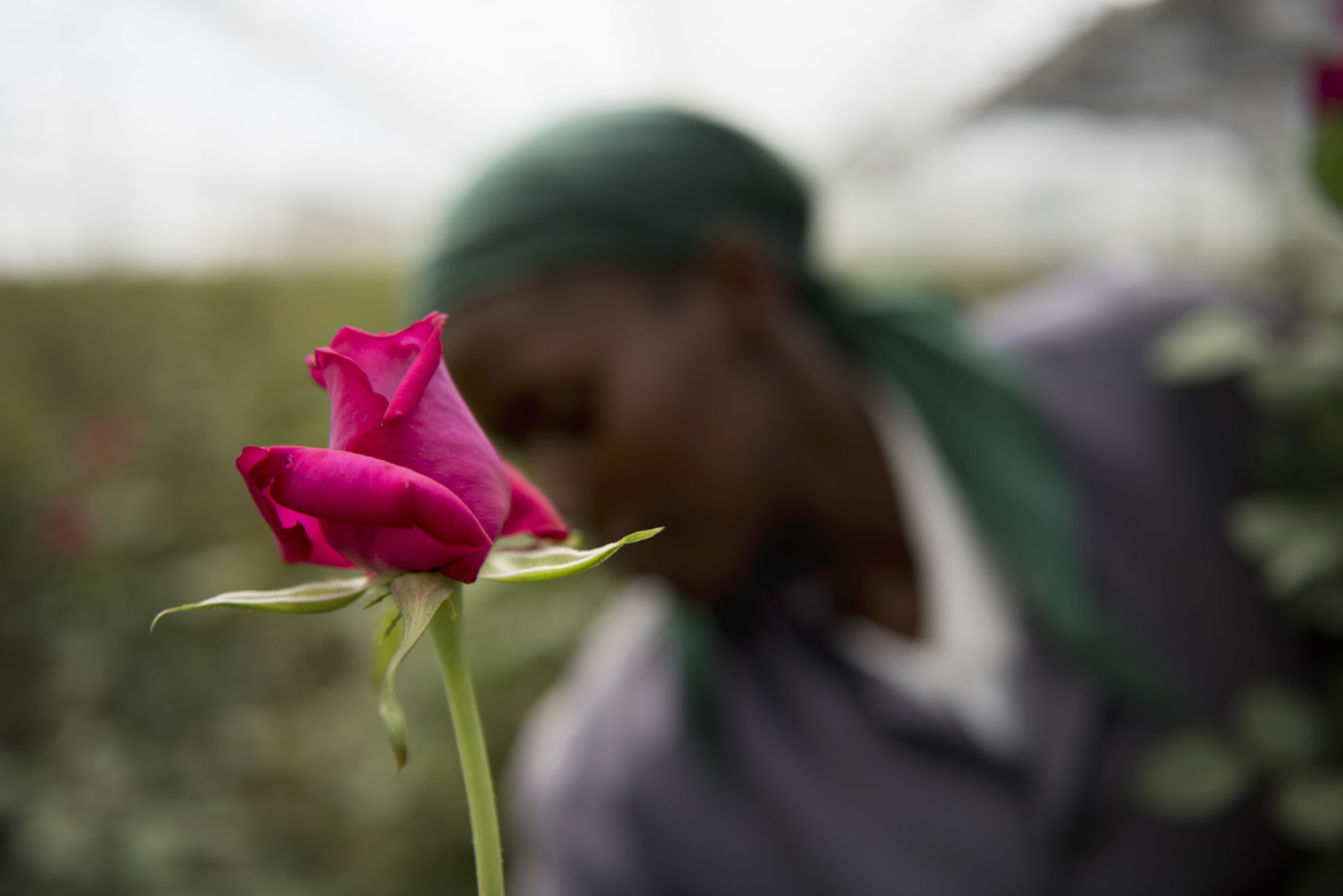photo and copyright Leonard Fäustle
Addressing maternity protections and the silence around infant loss at the workplace
By Kalevera E. Imungu, Project Associate Women@Work Campaign for Hivos East Africa.
Life happens at the workplace and for millions of women this also means enduring pregnancy and infant loss while working. How can and should employers support parents going through this loss? What does the law say? For women in Uganda’s flower farms, these questions are slowly being answered.
October is marked internationally as pregnancy and infant loss month. The pregnancy loss movement traces its beginnings to 1988 in the USA under the Reagan administration, but pregnancy and infant loss is not new at all. Millions of women have endured pregnancy and infant loss and current statistics – though varying slightly per country – estimate that 20% of pregnancies end in miscarriage: meaning 1 in 5 women have experienced this loss.
Losing a baby during pregnancy through miscarriage or still birth is still a taboo subject, linked to stigma and shame. This stigmatization is largely supported by patriarchal notions around women as only reproductive beings and any pregnancy complications are thus blamed on the woman. Many women blame themselves upon enduring pregnancy loss while most times the loss was not preventable or may be a consequence of structural issues with regard to maternal healthcare.
Within the workplace, women in both formal and informal workplaces continue to face immense challenges with accessing maternity protections, leave and consideration. This challenge is complicated tenfold when a woman is pregnant but suffers a miscarriage or still birth. In many countries in the world she is not entitled to maternity leave; thus in some cases will have to use her own leave days or take advantage of bereavement leave which in many cases is less than two weeks.
Within Uganda’s flower farms, the conversation around ensuring adherence to maternity protections within the law for women workers has come a long way. The legal provisions stipulate that at the very least women workers are entitled to 60 working days maternity leave and women who have suffered a miscarriage are entitled to four weeks leave. It is also unlawful to terminate a woman based on pregnancy.
The Hivos Women@Work Campaign partners in Uganda with significant input from UWEA (Uganda Workers Education Association) and AMwA (Akina Mama wa Afrika) have been training women workers on flower farms in the area of women’s leadership, incorporating aspects of gender equality, labor rights and financial literacy. These rights’ based conversations were a catalyst to supporting the women to take lead and advocate for themselves within the workplace as far as maternity protections, leave and miscarriage leave is concerned. Many women were aware of maternity leave but not miscarriage leave. However, after the trainings and armed with this knowledge, the women stood a better chance in taking on management to abide by the law.
The secrecy and shame around pregnancy and infant loss meant that women workers who had suffered miscarriages not only did not receive leave but would doubly suffer stigma and be the target of gossip. It was and still is common for women who suffer miscarriages to be accused of having procured abortions (abortion is largely still illegal in Uganda) and thus not entitled to time away to recover and grieve. Pregnant women were also laid off under suspicious circumstances, mothers were not given breastfeeding breaks and felt a general lack of consideration.
Through the efforts of these trainings and negotiation efforts by the workers union (UHISPAWU), workers were able to offer recommendations to management to remedy the situation and act in accordance with the law while the union was able to negotiate for 60 working days maternity leave and within some farms even 80 or 90 days are granted to women as their maternity leave. Additionally, new mothers are given appropriate duties after an examination to ascertain their recovery progress and several farms have instituted rest rooms for new mothers and given them breastfeeding breaks up to a total of 1.5 hours a day. One farm has a full clinic on the premises as well.
Women who have undergone miscarriage and infant loss are also now able to receive appropriate rest time. One woman who suffered a miscarriage at 4 weeks was able to share during a follow up reflection session with UWEA that once she presented this evidence to her employer, she was granted miscarriage leave. Uganda’s law also provides that fathers who have lost children through miscarriage are entitled to 4 days leave. These little known but necessary protections directly contribute to employee welfare and decent work once enforced.
Rights awareness creation coupled with leadership training facilitated by AMwA and UWEA are key ingredients towards realizing an empowered cohort of women leaders in horticulture. These interventions however need to be replicated across many more farms and sectors. The resulting advocacy should address maternity protections across the board, including appropriate work wear for pregnant women made for safety and comfort. Child care provision as well remains lacking in several workplaces and farms despite the fact that women constitute the majority of horticulture farm workers and informal sector workers. Further de-stigmatization of miscarriages and still births also remains a key area of intervention. Civil society, governments, trade unions and the women and men in Uganda’s workplaces still face numerous challenges ahead on the road to enduring safe and decent work.




